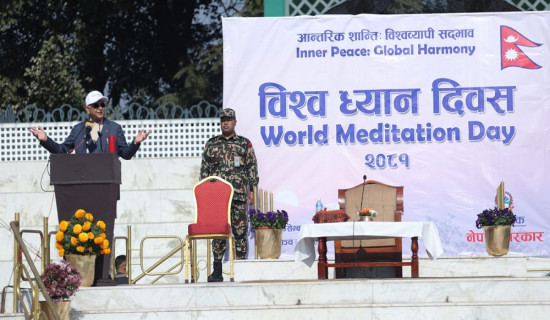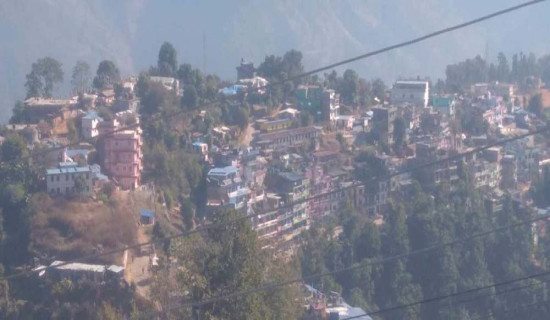- Saturday, 21 December 2024
Iran fires 180 missiles into Israel as region-wide conflict grows
Jerusalem, Oct. 3: Iran launched at least 180 missiles into Israel on Tuesday, the latest in a series of rapidly escalating attacks between Israel and Iran and its Arab allies that threatens to push the Middle East closer to a region wide war.
Iran said the barrage was retaliation for a series of devastating blows Israel has landed in recent weeks against the Iran-backed militant group Hezbollah in Lebanon, which has been firing rockets into Israel since the war in Gaza began. Earlier Tuesday, Israel launched what it said is a limited ground incursion in southern Lebanon.
Israelis scrambled for bomb shelters as air raid sirens sounded and the orange glow of missiles streaked across the night sky.
Israeli military spokesman Rear Adm. Daniel Hagari said the country’s air defenses intercepted many of the incoming Iranian missiles, though some landed in central and southern Israel. Israel’s national rescue service said two people were lightly wounded by shrapnel. In the West Bank, Palestinian officials said a Palestinian man was killed by a missile that fell near the town of Jericho, though it wasn’t clear where the attack originated.
Israeli Prime Minister Benjamin Netanyahu vowed late Tuesday to retaliate against Iran, which he said “made a big mistake tonight and it will pay for it.”
Iran’s armed forces joint chief of staff Gen. Mohammad Bagheri warned that Iran would respond to action against its territory with strikes on Israel's entire infrastructure with “multiplied intensity.”
Israeli airstrikes and artillery fire pounded southern Lebanese villages on Tuesday, and Hezbollah responded with a barrage of rockets into Israel. There was no immediate word on casualties.
Moments before Iran launched its missiles, a shooting attack in Tel Aviv left at least six people dead, police said, adding that the two suspects who had opened fire on a boulevard in the Jaffa neighbourhood had also been killed.
Hezbollah and Hamas are close allies backed by Iran, and each escalation has raised fears of a wider war in the Middle East that could draw in Iran and the United States, which has rushed military assets to the region in support of Israel.
Israel and Iran have fought a shadow war for years, but rarely have they come into direct conflict.
The U.N. Security Council scheduled an emergency meeting for Wednesday morning to address the escalating situation in the Middle East.
Iran launched another direct attack on Israel in April, but few of its projectiles reached their targets. Many were shot down by a U.S.-led coalition, while others apparently failed at launch or crashed in flight.
White House National Security Adviser Jake Sullivan called Iran’s missile attack a “significant escalation,” although he said it was ultimately “defeated and ineffective,” in part because of assistance from the U.S. military in shooting down some of the inbound missiles. President Joe Biden said his administration is “fully supportive” of Israel and that he’s in “active discussion” with aides about what the appropriate response should be to Tehran. (AP)

















